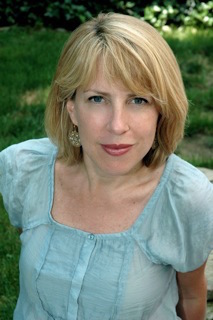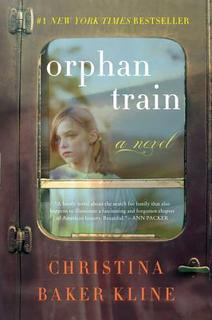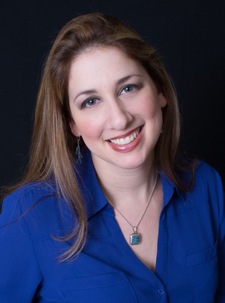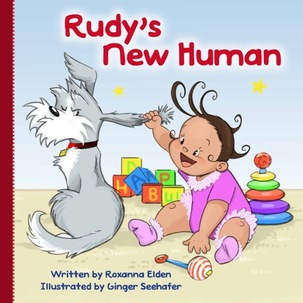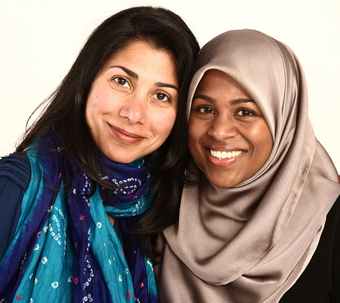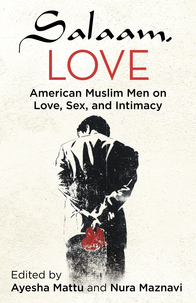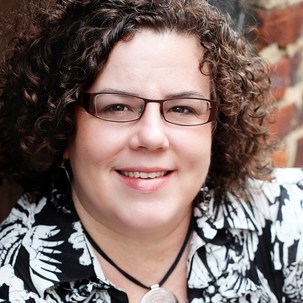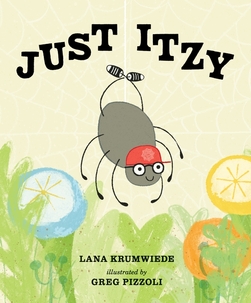The Book Doctors scoured our archives to bring you some of our top writing advice from 2018. Ask us questions in the comments. Visit us at https://thebookdoctors.com. SUBSCRIBE: https://goo.gl/9VaE9C.
Tag: writers conference
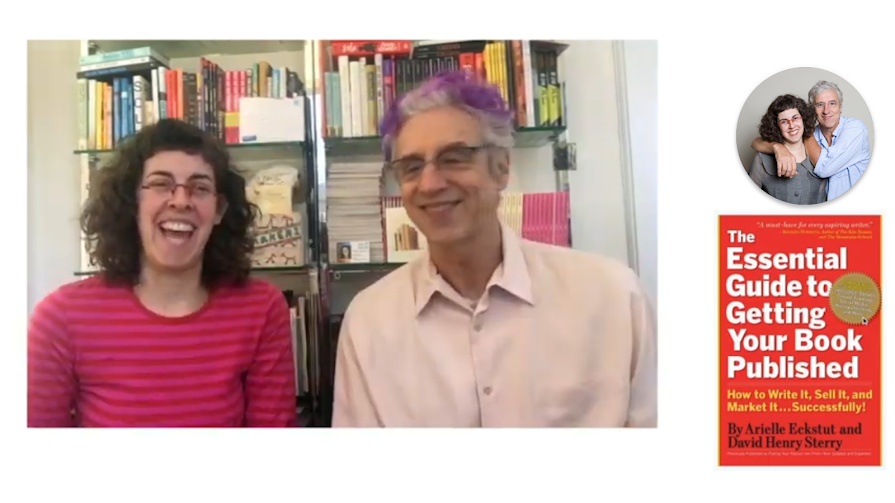
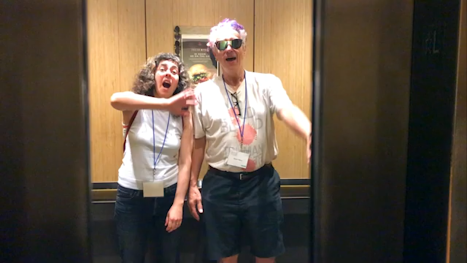
The Book Doctors, publishing experts, fix the elevator pitch
of writer Melanie Doctors, who delivers her elevator pitch
for her book to the Book Doctors at Kauai Writers Conference … in an elevator! Their elevator pitch tips follow, as they help her become a successfully published author. Thank you, Melanie!
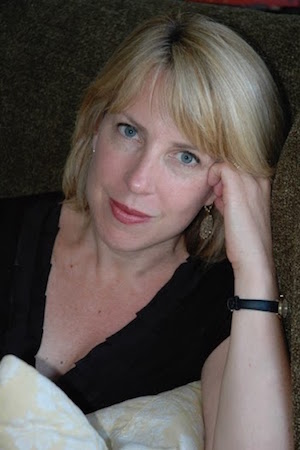
Selling your First Novel, Maximizing Writers’ Conferences and Making a Living While Writing
We are lucky to live in a town called Montclair, New Jersey. We had no idea when we moved here how many amazing writers would live within a stone’s throw of us. One of them is Christina Baker Kline. We got to know her before her New York Times best-selling novel, Orphan Train, was published. She was at the center of the writing community in Montclair, helping writers both published and unpublished to get their foot into the door of the book biz. It often seems like a bestseller comes out of nowhere, fully formed like Athena springing from the head of Zeus. But as you’ll see from our interview with Christina, a groundbreaking novel, like Rome, is not built in a day.
The Book Doctors: You were a writer for many years before you had a mega bestseller. Take us down the path of your decision to become a writer, the arc of your career, and how it led up to your most recent success.
Christina Baker Kline: I have always been a working writer, by which I mean I was a scrappy kid. I was raised by professor parents who had no money. My mother taught at a community college. When I was about 11 or 12, she put me in charge of cooking, and she put my sister Cynthia, who was about 18 months younger, in charge of laundry. She had to stand on a box to do laundry. And so we became quite self-sufficient. We also took care of our two baby sisters. We called them The Babies until they were 12. And I remember one of my sisters saying, “You have to stop calling us The Babies. We’re not babies anymore.”
In college, I majored in English literature. I did a Masters of Arts in literature for graduate school, and then I did an MFA. For me, as it so happened, English was a marketable degree, even though people might not think of it that way, because that’s where my skills lie. My masters in English literature helped me get teaching jobs. For my MFA, I knew that I could stave off student loans for two more years, and I also wanted to write a novel, but I knew I would never be able to do it if I was working full-time. So I applied to ten programs. I got full fellowships at two, Michigan and The University of Virginia, to, as far as I was concerned, write a novel. They didn’t know I was going to write a novel. MFA programs are not set up to write novels. But I was very directed. I had one shot, and then I was going to be repaying student loans and working. I wrote my first novel in two years while pretending to be writing short stories. I kind of handed in little bits and pieces and old stories.
I also was an entrepreneur, and I had a company called Writing Works, which I started with another grad student. We edited Guggenheim applications, professors’ essays, and letters. Books even. Then I came to New York and continued that little company. I’ve always set up a life in which I was working as an editor and teaching.
I’ve always assumed I would have to make a living in addition to writing. I have ten books, and I’ve always gotten reasonable advances. I broke six-figures once in that period of all those books, but I always had high five-figure advances. Sometimes I could support myself for a year, and sometimes I couldn’t. But the big picture is, I always knew that I wanted to write, and I always assumed it would also entail making a living in some other way as well. So I never expected to write a book that would mean I wouldn’t have to do other jobs.
TBD: What happened to that first novel?
CBK: For my first novel, I got $7,500. It was the little engine that could, and it far surpassed my modest expectations. We sold rights in other countries. We sold film rights, first serial rights. It was a Reader’s Digest Condensed Book. For $40,000, Reader’s Digest bought it. That was huge because the book had earned out way before it came out. This led to a bidding war for my next novel. Of course, that’s how I thought it would continue forever. But the second novel did very poorly, and I had gotten a big advance. So I sold my next novel for a reasonable amount and got myself back on track in terms of publishers not being terrified to take me on. And then my next book was much darker, more serious. That didn’t do so well. My career was very up-and-down. That brings us to Orphan Train.
TBD: It’s interesting that you’ve never really experienced full-on rejection in the way that most writers have. Despite the ups and downs, it sounds like a really nice run!
CBK: Not exactly. I have been protected a bit from rejection. But I went through one very dark period. I had this wonderful experience with my first novel. I had a lot of interest in my second novel. But the editor who bought it was a celebrity editor; she was not hands-on. She took on a lot of writers like me, paid them well because she had a big budget, and then waited to see who would rise to the top. She’d tell me she read the manuscript but didn’t seem to know the story. Her assistant would call and say it was in the pipeline, and I would know it wasn’t. Crazy. I had just had my third child, my second book had done poorly, and my life was kind of a shit show.
TBD: You’ve written many different kinds of books. Now you have a huge bestseller. Do you feel pressure to recreate Orphan Train?
CBK: As you said, all of my books are really different from each other, and they probably always will be. I don’t feel constrained by the weight of Orphan Train. I feel freed by it in a way. Nobody ever thought Orphan Train was going to be a bestseller. There are these books–Eat, Pray, Love, or Water for Elephants, or The Lovely Bones–that writers publish and then have respectable careers, but they don’t repeat that level of commercial success. I fully intend to be that kind of writer. I don’t plan on having another one. I’m not a writer like Stephen King whose books will always be at the top of the bestseller list. And I don’t feel bad about it.
Look at a writer like Claire Messud, who made a big splash with her novel The Emperor’s Children. That was her big book, and she’s very respected. But if you read her other novels, they are very dark and intense. It’s who she is and what she does, and she’s not trying to write to an audience.
My next book is quiet and interior; it’s about a woman who essentially never leaves her house.
Another thing: after I handed in Orphan Train, before it came out, I called everyone I knew in publishing and asked for jobs. I thought, “I have to get a full-time job as an editor. I can’t do this anymore. This book is probably just going to fail.” I was editing 50 manuscripts a year and teaching. It was grueling. I had several interviews, and they all basically said, “You’re too old. There’s no way we’re hiring you as an editorial assistant or anything else.” They didn’t say that, but it was clear. I thought, “What am I going to do? Just work at Starbucks or something?”
TBD: You still teach at writers’ conferences. I see you’re going to be at the Kauai Writers Conference in November. (So jealous!) What impresses you when you come across someone who has never been published when you’re in this environment?
CBK: I was reading The New York Times on the plane yesterday, and there was this person talking about what leads to success. He said there’s an equation, which is Talent + Work = Skill. Skill + Work = Success. But Big Success is when you have a vision of how what you’re doing makes the world a better place. So what I guess impresses me is when they have the talent, the work ethic, the willingness to read a lot, and are willing to edit their own work–a lot of people aren’t. To me, editing is the secret to writing. I edit so much, and I think it’s very important. In literary stories and novels the sound and rhythm of words matter. But understand that even if you want to write a literary novel, plot and structure are incredibly important.
TBD: And on the flip side of that, what do you see people doing that’s a turnoff
CBK: If people want things from me but they don’t know my work, or they haven’t read it and have nothing to say about it, then I’m as anonymous to them as they are to me. If I don’t feel they have any particular reason for approaching me, I don’t have any particular reason for helping them. But if a writer knows my work and has some kind of connection to it, I’m open to being approached. I love discovering and championing great new writing. It’s one of the best things about this writing life.
TBD: We can’t wait to read the next book, Christina!
Christina Baker Kline is the author of five novels. Her most recent novel, Orphan Train, has spent more than two years on the New York Times bestseller list, including five weeks at # 1, and has been published in 38 countries. More than 100 communities and colleges have chosen it as a “One Book, One Read” selection. Her other novels include The Way Life Should Be, Sweet Water, Bird in Hand, and Desire Lines. Her new novel, based on the iconic painting Christina’s World by Andrew Wyeth, will be published in Winter 2017.
In addition to her five novels, Kline has written and edited five nonfiction books. She commissioned and edited two widely praised collections or original essays on the frist year of parenthood and raising young children, Child of Mine and Room to Grow, and a book on grieving, Always Too Soon. She is the coeditor, with Anne Burt, of a collection of personal essays called About Face: Women Write About What They See When They Look in the Mirror, and is co-author, with her mother, Christina Looper Baker, of a book on feminist mothers and daughters, The Conversation Begins. Her essays, articles, and reviews have appeared in The New York Times, the San Francisco Chronicle, Money, More, Psychology Today, among other places.
JOIN OUR NEWSLETTER TO RECEIVE MORE INTERVIEWS AND TIPS ON HOW TO GET PUBLISHED.
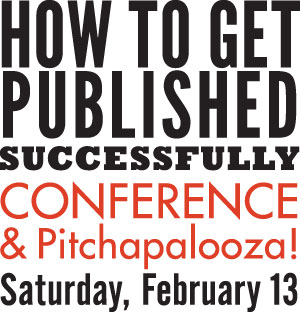
Yes! Look, you can’t call up HarperCollins and say, “Hello! I’ve written a great book, could I please speak to Mr. Harper or Mr. Collins?” If you’re an unknown quantity, and you aren’t sleeping with someone at a literary agency–or even if you are, in some cases–it’s virtually impossible to get face time with a publishing professional, be it an agent, editor, or publisher. Your blind query is usually dropped with a plop into the slop of the dreaded and aptly named slush pile, where it is then skimmed over by an eighteen-year-old unpaid intern. The fate of your book, the object of your passion and hard work, is frightfully beyond your control. Luckily, at the best writers conferences and workshops, and even some of the top-drawer bookfairs and festivals, you can personally meet, speak with, and sometimes even pitch to real publishing professionals. We know. We’ve met amazing writers at all of these places and helped them get book deals.
“I’d already begun the pitch process by mail and email, and it felt like yelling into the void most of the time,” recalls Roxanna Elden, whose experiences looking for an agent to represent her first book are all too typical. “There were agents who took six months to respond to emails, and one who asked me to send a hard copy of the manuscript overnight, then rejected me weeks later with a one-line, all-lowercase email that said something like, ‘love the title but not for me sorry.'”
Nura Maznavi and Ayesha Mattu thought they had won the lottery when they almost immediately landed an agent. Their agent shopped their proposal to a dozen big New York City publishers and one by one they were rejected. “Soon after,” Nura explained, “our agent dumped us because she no longer had faith in the project.”
Roxanna, Nura, and Ayesha knew they needed to get in front of professionals. Roxanna signed up for Miami Writers Institute, an annual conference at Miami Dade College. There, she attended a talk by agent Rita Rosenkranz. “By this time, I had perfected my pitch and built my platform and had some idea of what I hoped to find in an agent. Then, in her talk, Rita mentioned that many agents wrongly ignore books for niche markets, which my first book was. She also said she was looking for authors who showed the willingness to hustle to promote their work. Everything she said made her seem like an incredibly good fit for my work. I walked up to her after the talk, handed her my card, and emailed her as fast as I could. She answered my email within 24 hours… and still does!” Rita went on to sell not only Roxanna’s first book, See Me After Class, but also her children’s picture book, Rudy’s New Human.
Nura and Ayesha took themselves to Litquake, San Francisco’s biggest literary festival. They signed up for an event we do around the country called Pitchapalooza (think American Idol for books), and they won an introduction to an agent or editor who was appropriate for their book, Love InshAllah: The Secret Love Lives of American Muslim Women. One call later, they had a book deal. “A year later, our book was published and we were on the front page of the New York Times Arts section. And, two years later, we had a follow up book, Salaam, Love: American Muslim Men on Love, Sex & Intimacy!”
But just attending a writers conference, workshop, or book festival is no guarantee of a book deal. How you present yourself (and to whom) matters as much as your idea and your book. You have to pick the right agent or editor. Present yourself as a complete package. Seize every opportunity at just the right moment.
Lana Krumwiede, whose attendance at the James River Writers Conference helped land her first book deal for Just Itzy, advises, “Be as prepared as possible by researching the agents, editors, and authors who will be speaking. You’ll get more out of the conference that way and you’ll feel more confident talking to people. Get out there and talk to people! Ask (appropriate) questions and take in as much as you can. And if you have an appointment with an editor or an agent, don’t fall into the trap of thinking of it as your ‘one big chance.’ There is no such thing as ‘one big chance.’ You will have as many chances as you create for yourself.”
Victoria Skurnick, a literary agent at Levine Greenberg Rostan Literary Agency, has this advice for first-time attendees, “There are ways to an agent’s heart at conferences for writers. The first is–be normal. This is harder for some people than you might have thought. The second, be helpful. The people who provided me with a club soda when they noticed my voice cracking, who offered to pick me up and drive me to a dinner far away–I will be grateful to them for the rest of my life.”
We agree. Here are our top ten tips for scoring at a writers conference, workshop, or bookfair.
The Book Doctors Top 10 Tips for Scoring at a Writers Conference, Workshop or Bookfair
- Look good, smell good, and don’t be late. Pretend you’re a guest on The Today Show–act and dress accordingly.
- Be respectful of publishing professionals. Don’t just blast over and bombard them. Be patient, wait for your opening. Never pitch your book unless they ask you to, and if they do, don’t go longer than a minute. And please, we beg you, don’t follow them into the bathroom! This has happened to us more times than we care to remember.
- Listen more than you talk. Your goal should not be to pitch at all costs. Better to have a good conversation where you get to know an editor or agent.
- Research! Make sure the event caters to the kind of book you’re selling. Make note of who is presenting, and plan your approach for whom you want to meet. Sign up early. The most valuable conferences, classes, and one-on-one sessions fill up fast.
- How do you get to perform at Carnegie Hall? Practice, practice, practice. The same is true with pitching books. Workshop your pitch whenever possible. Tell everybody who will listen, honing your delivery so the pitch lasts less than a minute. Try rehearsing with other conference attendees. All this extra effort will have a make-or-break effect on an agent or editor.
- Have an excellent business card and don’t be afraid to use it. Collect as many cards as you can.
- After the event, follow up all leads as quickly as possible. Early birds strike while the iron is hot.
- Network! Meet as many fellow writers as possible. These encounters can blossom into all sorts of relationships. You never know who will be published one day.
- Buy books written by people you want to approach. Ask them to sign the book for you if they are willing. Use this as an informal opportunity to make a connection.
- Connect! Do something nice for booksellers, agents, editors, writers, and publishing professionals using social media. If done actively and appropriately, tweeting, facebooking, instagramming, and blogging are great ways of staying in touch and making yourself a known quantity.
The Book Doctors travel across America to feature in writers workshops, conferences, bookfairs, and festivals. On February 13th, we’re holding a conference and Pitchapalooza at one of the greatest bookstores in the country, Changing Hands. If you are in the Phoenix area, come hang out, polish your skills, and maybe take a selfie with us. But please, don’t follow us into the bathroom.

To read this article on the Huffington Post, click here.
Roxanna Elden has been a teacher for eleven years and is the author of See Me After Class: Advice for Teachers by Teachers. Her inspiration for Rudy’s New Human came from watching her dog, Rudy Elden, as he adjusted to having a new baby human in the house. She lives in Miami, Florida, with Rudy and his (now two!) little humans.
Lana Krumwiede began her writing career by creating stories and poems for publications such as Highlights, High Five, Spider, Babybug, The Friend, and Chicken Soup for the Child’s Soul. Her first novel, Freakling (Candlewick, 2012) was named a finalist for SCBWI’s Crystal Kite Member’s Choice Award and an honor book for the International Reading Association’s Intermediate Fiction Award. Freakling was followed by two more novels, Archon (2013) and True Son (2015). Lana is also the author of the picture book Just Itzy (2015). She lives with her husband and daughter in Richmond, where she sits on the board of directors for James River Writers and runs a local writers’ group.
Ayesha Mattu is a writer, editor and international development consultant who has worked in the field of women’s human rights since 1998. She was selected a ‘Muslim Leader of Tomorrow’ by the UN Alliance of Civilizations & the ASMA Society and has served on the boards of IDEX, the Women’s Funding Network, and World Pulse. Ayesha is an alumna of Voices of Our Nations writers’ workshop and a member of the San Francisco Writers’ Grotto.
Nura Maznavi is an attorney, writer, and Fulbright Scholar. She has worked with migrant workers in Sri Lanka, on behalf of prisoners in California, and with a national legal advocacy organization leading a program to end racial and religious profiling. She lives in Chicago.
Victoria Skurnick came to Levine Greenberg Rostan Literary Agency after being at The Book-of-the Month Club for almost twenty years. As Editor-in-Chief, she relished the opportunity to devour every kind of book, from the finest literary fiction to Yiddish for Dogs. She also is the co-author (with Cynthia Katz) of seven novels written by “Cynthia Victor.”
Arielle Eckstut and David Henry Sterry are co-founders of The Book Doctors, a company that has helped countless authors get their books published. They are co-authors of The Essential Guide to Getting Your Book Published: How To Write It, Sell It, and Market It… Successfully (Workman, 2015). They are also book editors, and between them they have authored 25 books, and appeared on National Public Radio, the London Times, and the front cover of the Sunday New York Times Book Review.

